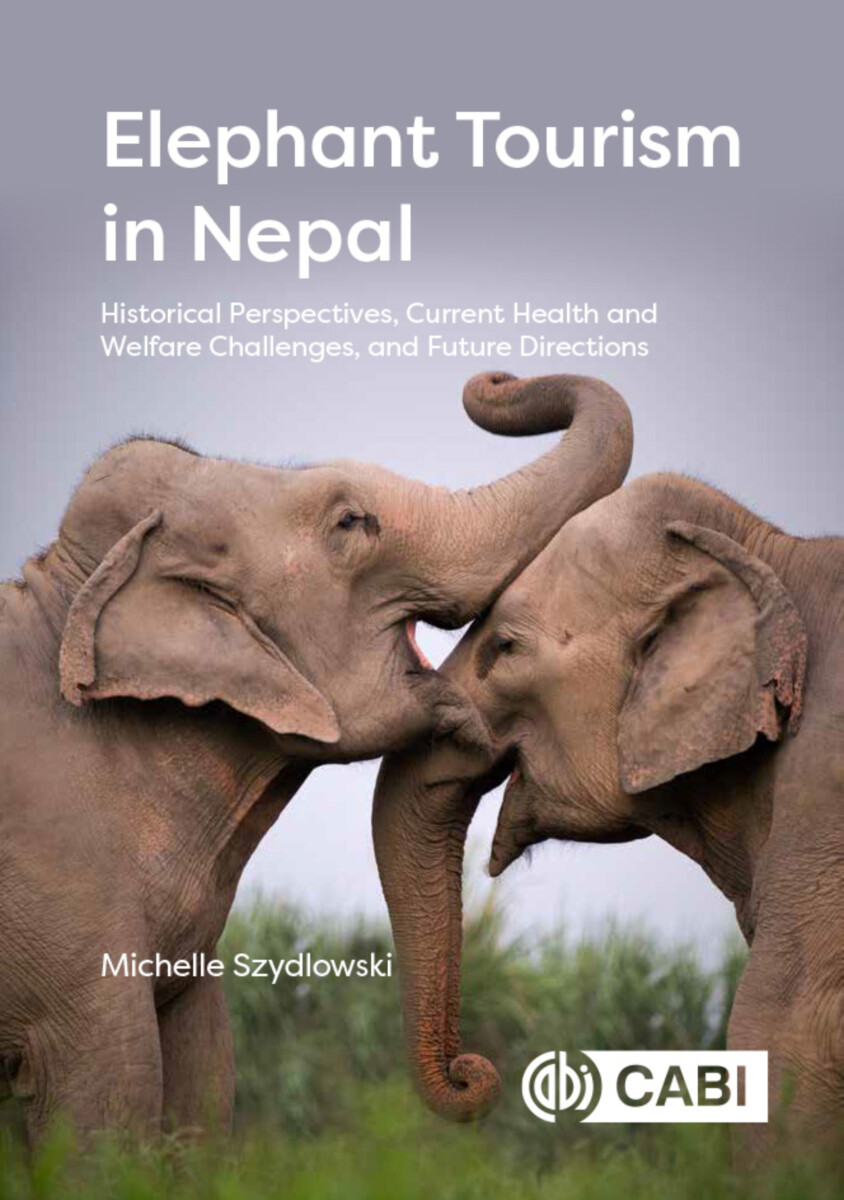Elephant Tourism in Nepal
Historical Perspectives, Current Health and Welfare Challenges, and Future Directions
- Publisher
CABI - Published
20th February 2024 - ISBN 9781800624474
- Language English
- Pages 248 pp.
- Size 6" x 9"
A study of elephant tourism in Nepal from its origins in the 1960s to the present day, this book examines the challenges faced by captive elephants. Used as human conveyance, on anti-poaching patrol teams, as rescue vehicles, and in forestry service, elephants have worked with and for humans for hundreds of years. However, the use of elephants in tourism is a fairly new development within Nepal. Because the health and welfare of tourism elephants is vital to the conservation of wild individuals, this book offers an assessment of captive elephant needs and an examination of their existing welfare statuses.
Numerous NGOS and INGOs are now active in elephant lives, and numerous advocacy organizations have arisen with the goal of changing tourism practices and improving captive elephant welfare.
This book seeks to examine the motivations of these NGOs and INGOs, and to consider their ethical approaches to elephant health and welfare. Are the motivations of these organizations similar enough to work together towards a common goal, or are their ethical norms so different that they get in one another's way? Using an ordinary language and ethics framework, this text aims to identify the norms of cultures and organizations and reframe them in ways which may allow for more successful interactions.
1. Elephants in Nepalese History
2. Frameworks and Methods
3. Ethics, Care and Commodification
4. The Advent of Elephant Tourism In Nepal
5. Measuring Elephant Health and Welfare
6. Elephants Working in Conservation Practice
7. Privately ‘Owned’ Tourism Elephants
8. Non-Governmental Agencies and Their Effects on Elephant Care
9. An International Non-Governmental Organization Case Study
10. The Hattisar Assessments and Way Forward
11. Conclusions
Michelle Szydlowski
Dr. Szydlowski's previous research focused on how ecotourism practices impact community-based conservation efforts for rhino and elephant. She spent the last seven years teaching avian and reptile medicine, behavior, anthrozoology, sheltering, and conservation in US colleges. Szydlowski works with community-based conservation efforts focused on endangered species preservation, wildlife health, and sustainable development in Nepal. She continues to study governmental and I/NGO programs which purport to help captive elephants, and how their interactions impact population-level health and individual elephant lives. Her research also focuses on the welfare of endangered elephants and the members of marginalized communities that care for them. She is now working with several elephant owners and interest groups to create lasting, positive welfare changes for elephants in Nepal. Dr. Szydlowski previously served as the board chair for a global conservation fund. She now serves on the advisory board of an elephant-focused NGO. She is active in environmental and humane education projects, one world/one health programs, and biodiversity preservation. When not teaching, she can be found speaking about her work in Nepal, conservation, neurodiversity, anthrozoology, etc. Upcoming projects include a human-elephant conflict mitigation program and a companion animal study with co-researchers from four countries. Michelle co-hosts "The Anthrozoology Podcast," which discusses complex species relationships. You can visit her at internationalelephants.org.


